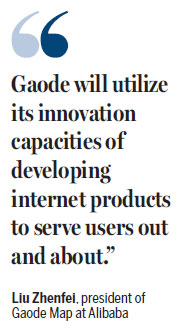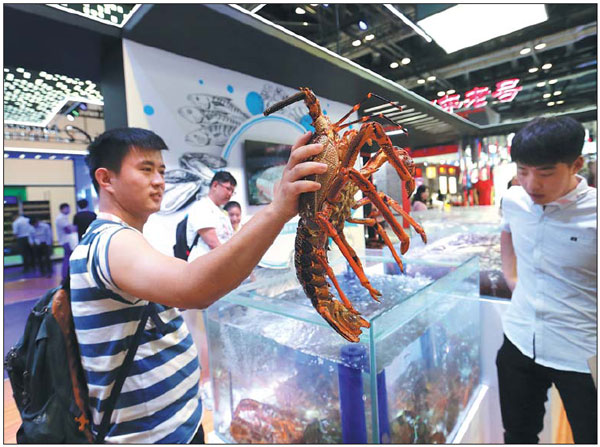Alibaba, Beijing join hands to create new retail city
E-commerce giant uses strength in technology to lead in shopping revolution
Chinese e-commerce giant Alibaba Group is showcasing its technological achievements in the new retail sector to global participants at the ongoing fifth China Beijing International Fair for Trade in Services.
New retail, a combination of offline and online experiences, features the use of big data, cloud computing, artificial intelligence and other emerging technologies.
The company signed a memorandum of understanding for cooperation in the new retail sector with the Beijing Commission of Commerce on Monday to upgrade the consumer market and build the capital into a new retail city.
Last month, Alibaba rolled out its New Retail City initiative, with Xi'an in Shaanxi province, Wuhan in Hubei province, Chengdu in Sichuan province, as well as Tianjin and other cities, joining the program.
Beijing, as the latest participant, is expected to see roughly 5,000 traditional shops go online, as part of the plan.
Alibaba's mapping unit, AutoNavi Software Co, also known as Gaode Map, will share geographic information with the Beijing Commission of Commerce.

Beijing residents will be able to find nearby vegetable markets, convenience stores and nursing rooms, as well as snack bars and restaurants at any time via the Gaode Map app.
"As part of Alibaba's infrastructure, Gaode will utilize its innovation capacities of developing internet products to serve users out and about and provide data for businesses, becoming a professional living map," said Liu Zhenfei, the new president of Gaode Map.
Five Hema stores, an emerging online-to-offline supermarket backed by Alibaba, have opened in Beijing, and 30 more are in the pipeline to open this year. Imported fresh fruit and seafood on Hema's shelves are all shipped to China directly from their countries of origin to ensure the product quality.
As an exemplar of Alibaba's new retail project, the Hema stores provide customers an option to shop or order online via the Hema app and have their orders delivered to their homes within half an hour.
In addition, thousands of supermarkets in Beijing are now listed on Ele.me, an online food delivery platform, which allows Ele.me drivers to deliver not only takeaway food but also fresh vegetables and other commodities to buyers at home.
Alibaba's online grocery store Tmall Supermarket has made efforts to promote the sales of time-honored brands in China, including Daoxiangcun pastries, Wuyutai tea and Beibingyang soda.
Statistics show that the sales of Beijing's time-honored brands in Tmall increased 90 percent in the first quarter of this year, compared with the same period last year.
The number of online buyers has jumped by more than 85 percent year-on-year, most of whom are non-local young people, the company said.
Jiang Xinjie, a senior expert of the new retail engineering department at Alibaba, said that the company has a strategic layout in the new retail sector and is providing a set of solutions needed by customers, as each of Alibaba's arms have complementary advantages in their businesses.
caoyingying@chinadaily.com.cn
|
A visitor holds a lobster taken from a water tank at the Hema-branded seafood section of Alibaba's exhibition area at the ongoing China Beijing International Fair for Trade in Services. Wang Zhuangfei / China Daily |
(China Daily 05/31/2018 page24)















